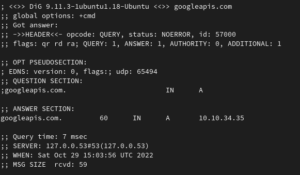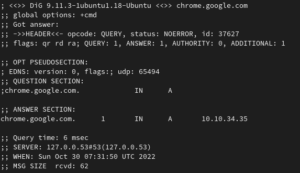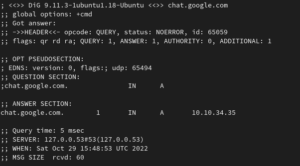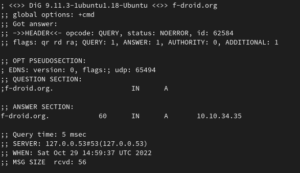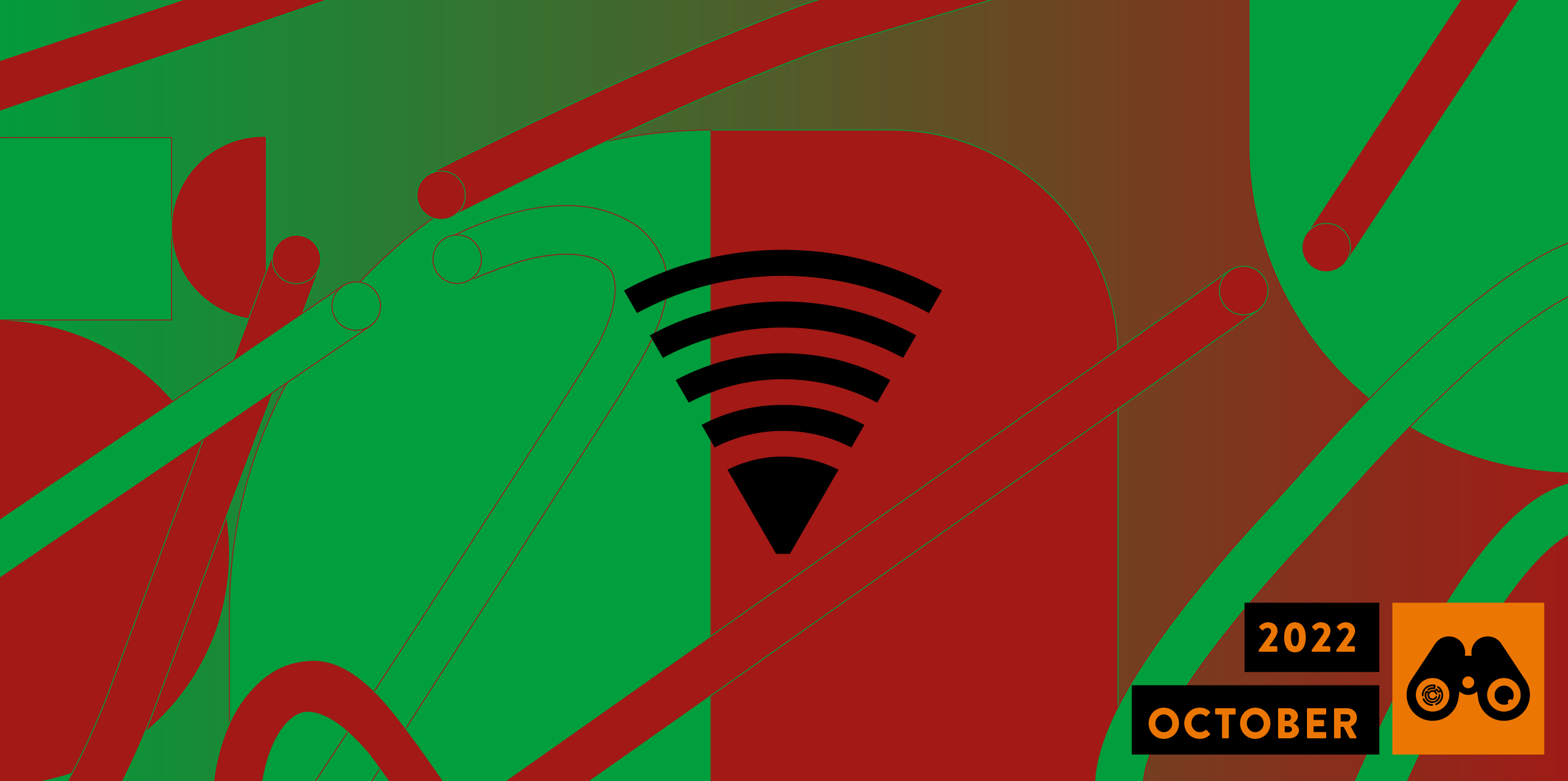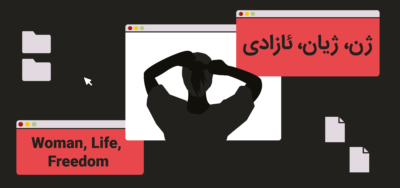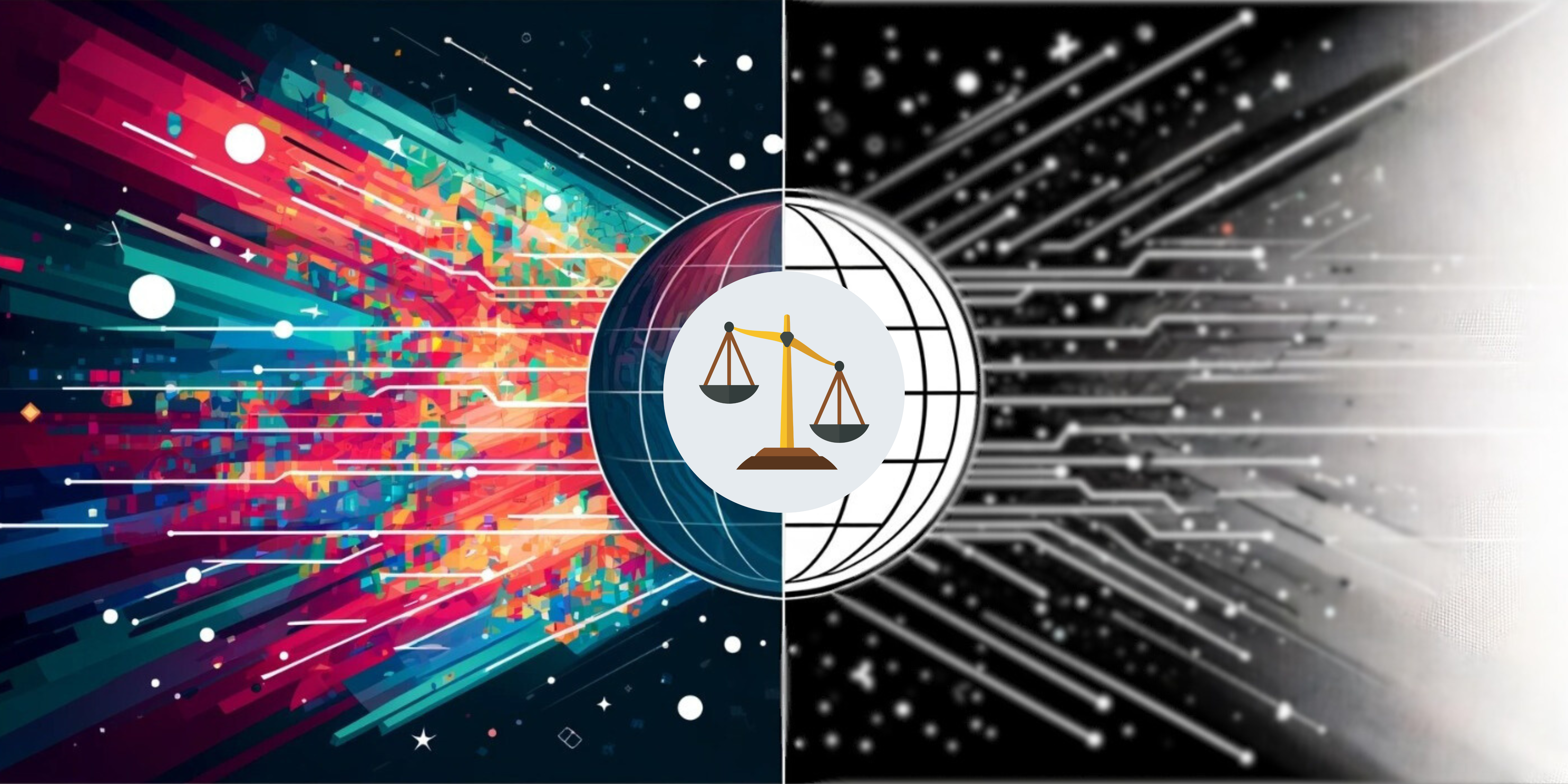Nationwide protests ignited by the death of Mahsa Jhina Amini in September continued into October without any signs of letting up. In response, Iranian authorities aimed to contain and silence protestors and activists by implementing various restrictions to the Internet, including mobile shutdowns. This month we observed a shift in some of the tactics used by authorities to control the free flow of information as detailed below.
In September, shutdowns of mobile data services followed a time pattern, effectively creating “digital curfews,” which began from around 4 pm local time, lasting until around midnight. During this time almost all means of communication – including games with a chat function – were disrupted or blocked nationwide. In October, however, rather than disrupting mobile connections nationwide during specific time periods, authorities implemented more localized shutdowns, especially targeting areas where protests were taking place. These localized mobile data shutdowns have been increasingly used by authorities since 2019 and especially in response to regional protests, including in Kurdistan, Khuzestan, and Sistan and Baluchistan.
October 26 marked the 40th day (or “chehelom”) since Mahsa Amini’s death. This day of mourning, which sparked demonstrations and public gatherings in her native province of Kurdistan and spread nationwide, was marred by violence as authorities attacked protestors and strategically shut down mobile data in protest areas. As of this writing, the death toll exceeds 400 people, including at leat 63 children, with more than 1,000 people arrested.
In late October, Google Play Store’s “Play Protect” (Google’s built-in malware protection for Android) blocked the government backed social media app Rubika citing “security concerns”. Although Rubika publicly denied this, Iranian authorities targeted Google products this month in what appears to be a retaliatory move. Multiple Google products, including Google Maps, Translator, Firebase, APIs, the Play Store, Chat, and even Font and many others were blocked. Some services like Font, were unblocked the day after, but the rest of the services remain blocked.
Timeline
October 1: According to data from Kentik, Iran’s biggest mobile internet providers (Irancell, MCI and Rightel) were cut off from the internet.
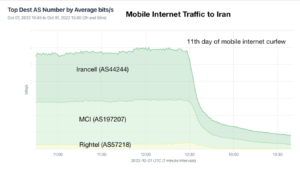
October 8: According to IODA data, the internet in Kurdistan province was almost completely cut off from the Internet at around 3pm local time.
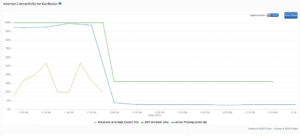
October 10-12: Between 10-12 October, there was a complete blackout in the city of Sanandaj, the provincial capital of Kurdistan. In other cities such as Tehran mobile data was also cut off, while domestic services via the National Information Network (NIN) were available.
October 13: Kentik data showed that on this date, mobile data was completely cut off at 9.30am local time.
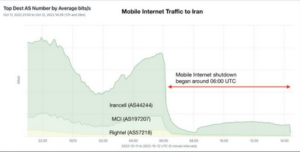
October 15: On this date a fire set the notorious Evin political prison ablaze in Tehran, as footage published online showed flames and smoke engulfing parts of the prison building. Families of prisoners gathered in front of the prison to check on their loved ones, while some people chanting “death to the dictator” could be heard in some videos. According to Iran’s state news four people died and 61 people were injured, though actual figures may be higher. The protest movements near the prison were followed by a localized mobile Internet shutdown in the area. A number of people were killed, injured and arrested during the protests.
October 26: This date marked the 40th day after the death of Mehsa Jhina Amini, which was commemorated with gatherings and protests in Kurdistan province, where she is buried and in other parts of Iran. Protests on this day were accompanied by a total Internet shutdown in Kurdistan province, coinciding with the demonstrations.
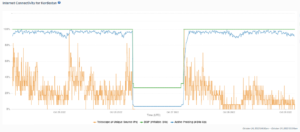
October 27: According to reports from local Internet users, the Internet was severely disrupted in the city of Mahabad in West Azerbaijan province as protestors gathered for the burial of Ismail Moloudi, who was killed by security forces during protests.
October 29 – 30: Google services were affected by a move by Iranian authorities to block almost all of their services, triggered by the Google Play Store’s “Play Protect” feature blocking the government-backed Iranian messaging app Rubika due to “security concerns.”
In a move which appeared to be in retaliation to the blocking, Iranian authorities blocked Google Maps, Google Translator, Firebase, Google APIs, the Google Play Store, Google chat and many other services.
